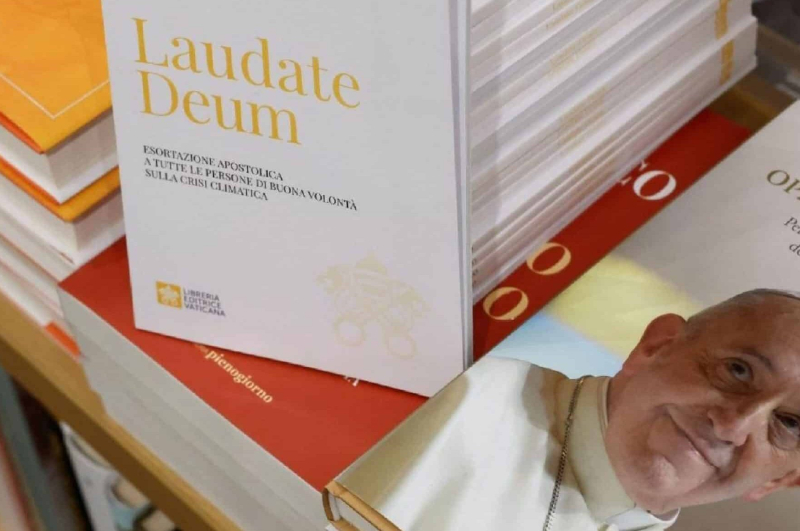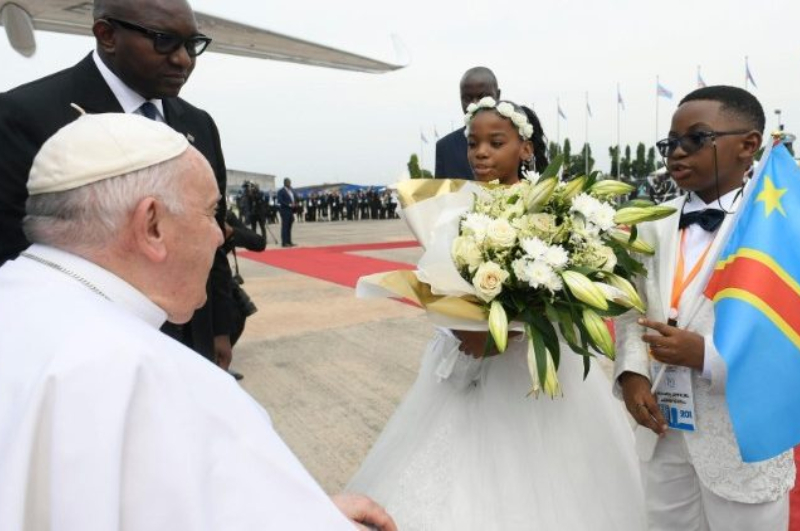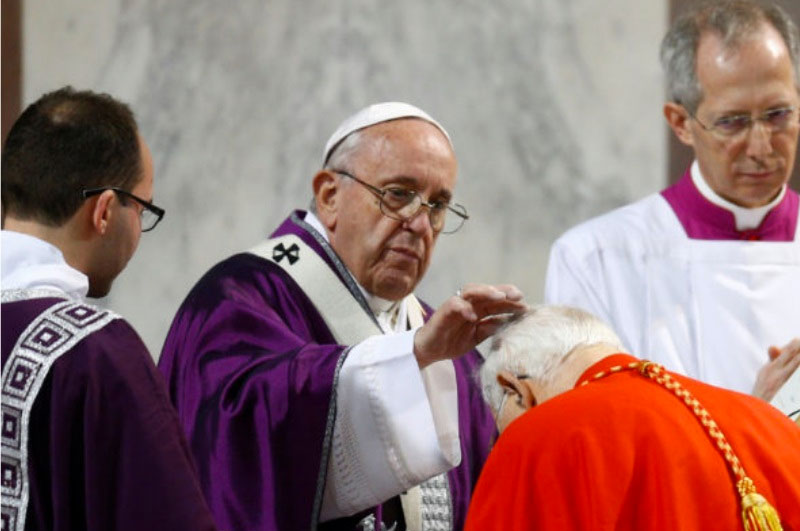



A backgrounder on the document and what it means for COP28 .
On October 4, 2023, just two months before UNFCCC COP28, Pope Francis released a new pastoral document addressing the climate crisis. This document, Laudate Deum, is addressed “to all people of goodwill” and is intended to be an addendum to Laudato Si’, the Pope’s groundbreaking 2015 encyclical on the global environmental and social crisis. It also draws on his 2020 letter, Fratelli Tutti, which called for transformative global political and economic reform in the spirit of social friendship.
Laudate Deum begins by making clear that the climate crisis is a moral concern of the utmost importance. Francis reminds us that climate change is primarily a question of good and evil, and he quotes the African bishops to make his point: To express bluntly that this is no longer a secondary or ideological question, but a drama that harms us all, the African bishops stated that climate change makes manifest “a tragic and striking example of structural sin” (LD 3). Below, we highlight a few key points relevant to governments and civil society organizations engaged in climate negotiations under the UNFCCC.
The UN climate change process (UNFCCC)
Pope Francis is committed to multilateralism, but he recognizes its failures. He argues that multilateralism needs to move beyond old models of diplomacy and take on new procedures to democratize global decision-making, including more dialogue and broader participation. He reiterates his stance that citizens must control political power, a point he first made in Laudato si’ (LD 38).
Francis describes the history of the UNFCCC, pointing to moments of success while still naming the overwhelming trend of failure and delay. He points out that although the Paris Agreement is legally binding, it contains very few clear and enforceable obligations for the contracting parties. He criticizes governments that place their national interests above the global common good and summarizes 30 years of climate negotiations as a failure of conscience and responsibility (LD 52).
COP28
Francis expresses hope while still recognizing the challenges presented by a long list of political dynamics, some specific to COP28 and some longstanding in the UNFCCC. He asks that those taking part in the conference be strategists capable of considering the common good and the future of their children more than the short-term interests of certain countries or businesses (LD 60). He states that the only way for the UNFCCC to recover its credibility is to decide at COP28 to rapidly mount a just transition to renewable energy that is efficient, obligatory, and transparent (LD 59).
Laudate Deum is important for several reasons. First, this type of sustained engagement with a specific policy process is unprecedented in Catholic Social Teaching. Even Laudato si’ was not so explicit in its engagement with COP21 and the Paris Agreement. In Laudate Deum, Francis makes specific policy demands and demonstrates a deep commitment to the UNFCCC process. Second, the new document also represents a significant prioritization of global political efforts over individual actions in the fight against climate change, something faith traditions are sometimes slow to do. According to Francis, the most effective solutions will not come from individual efforts alone, but above all from major political decisions on the national and international level (LD 69).
Laudate Deum is also important because of other developments in the Catholic Church. In 2022, the Holy See deposited its instrument of accession and became Party to the UNFCCC. Moreover, on the same day Laudate Deum was released, Francis opened a global meeting on “synodality,” which emphasizes listening, accompaniment, and discernment in the life of the Catholic Church. Perhaps the inclusive and transparent approach of this historic meeting will also inform how the Holy See engages in climate negotiations at COP28.
Questions? Contact Bryan P. Galligan, S.J. (bgalligan@jesuits.org).
Select Payment Method
Pay by bank transfer
If you wish to make a donation by direct bank transfer please contact Fr Paul Hamill SJ treasurer@jesuits.africa. Fr Paul will get in touch with you about the best method of transfer for you and share account details with you. Donations can be one-off gifts or of any frequency; for example, you might wish to become a regular monthly donor of small amounts; that sort of reliable income can allow for very welcome forward planning in the development of the Society’s works in Africa and Madagascar.
Often it is easier to send a donation to an office within your own country and Fr Paul can advise on how that might be done. In some countries this kind of giving can also be recognised for tax relief and the necessary receipts will be issued.



